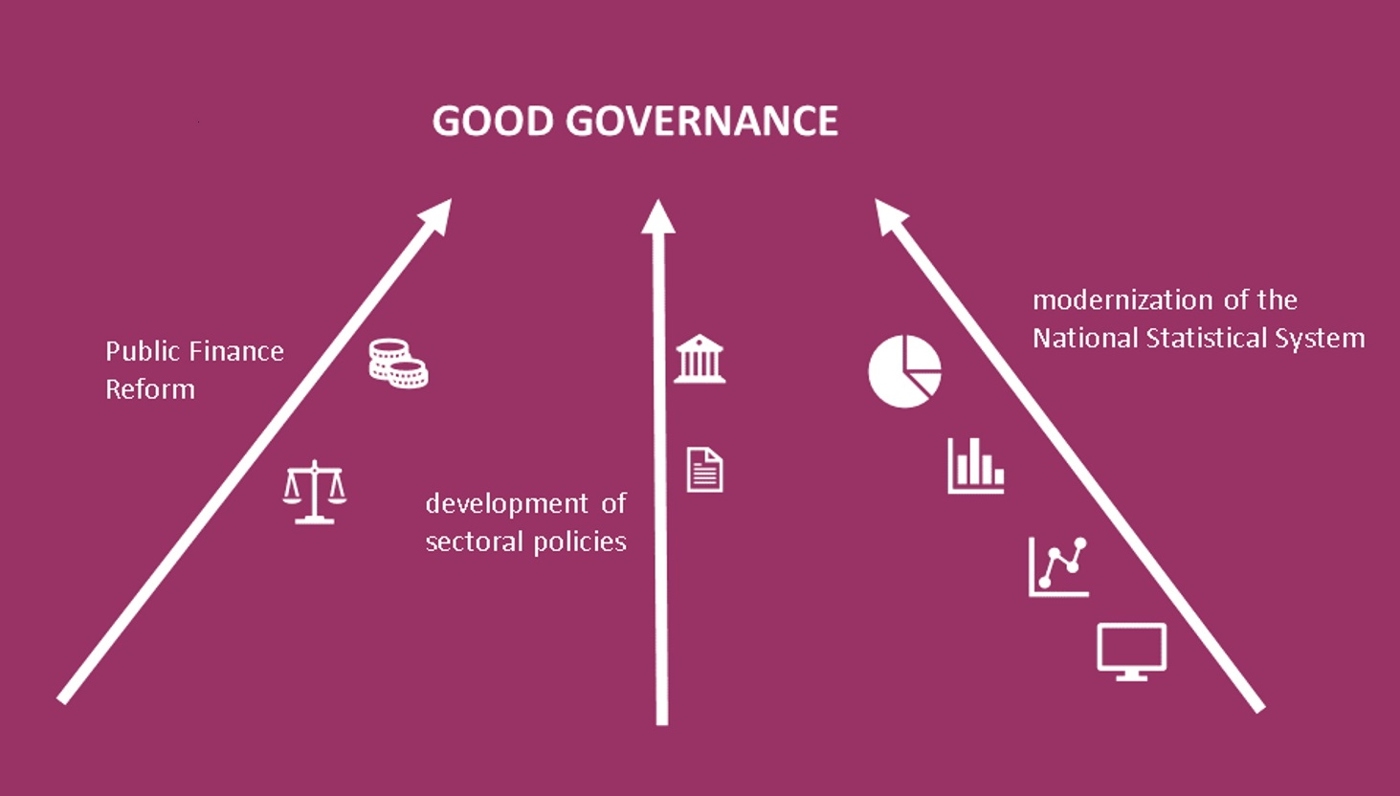
Project reference
16-0043-127-CIV-FinEvalPAG
Contract duration
2019 - 2020
Budget
110,152
Countries
Ivory Coast
Keywords
Governance, Monitoring & Evaluation
Final evaluation of the Gouvernance Support Programme
The overall objective of this programme was to contribute to the strengthening of the peace and recovery process in Côte d'Ivoire with a view to improving and promoting good governance. Situated at the crossroads of the main cross-cutting issues contained in the European Consensus on Development, the GAP supports the strengthening of governance in Côte d'Ivoire through 3 main components:
Axis 1. Support for the implementation of the Public Finance Reform for results-based budget management in line with the WAEMU Budget Reform.
Contribution to the development of sectoral policies in certain key sectors that have a direct impact on poverty and the root causes of the crisis (health, education, water, sanitation, national identity/civil status, agriculture, rural land tenure, etc.), in line with the orientations taken in the framework of the WAEMU Reform, as well as in more cross-cutting sectors such as the environment (membership of FLEGT, Forest Law Enforcement, Governance and Trade), or decentralization :
Axis 3. Support for the modernization of the National Statistical System :
Institutional support to the National Institute of Statistics (NIS) in the implementation of the National Strategy for the Development of Statistics:
For the implementation of the GAP, in addition to equipment support granted to the structures involved in the PPPBSE chain and specific support to the Chamber of Accounts in the form of a PD, two technical assistance packages were mobilised, namely
A mid-term evaluation with the main objective of providing stakeholders with an objective and reliable assessment of the implementation of the GAP with conclusions, recommendations, and lessons learned, likely to lead to proposals for updating, improving and revising the programme with a view to better implementation, based on the needs of the country and the performance achieved by the country in the governance sector was carried out from 23 November 2016 to 26 January 2017 by the evaluators of the DECG (Department of Evaluation and Management Control) of the National Authorizing Officer's Unit.
Axis 1. Support for the implementation of the Public Finance Reform for results-based budget management in line with the WAEMU Budget Reform.
- Component R1.1 - Institutional support to the Ministry of Economy and Finance (MEF) Component
- R.1.2 - Institutional support to pilot sectors of WAEMU reform: Component
- R1.3 - Support for institutional capacity building :
Contribution to the development of sectoral policies in certain key sectors that have a direct impact on poverty and the root causes of the crisis (health, education, water, sanitation, national identity/civil status, agriculture, rural land tenure, etc.), in line with the orientations taken in the framework of the WAEMU Reform, as well as in more cross-cutting sectors such as the environment (membership of FLEGT, Forest Law Enforcement, Governance and Trade), or decentralization :
Axis 3. Support for the modernization of the National Statistical System :
Institutional support to the National Institute of Statistics (NIS) in the implementation of the National Strategy for the Development of Statistics:
For the implementation of the GAP, in addition to equipment support granted to the structures involved in the PPPBSE chain and specific support to the Chamber of Accounts in the form of a PD, two technical assistance packages were mobilised, namely
- The Project to Support the Implementation of Results-Based Budget Management (PAGAR) for the "Reform of Public Financial Management" component; and ;
- the Project to Support the Planning and Statistics System (PAPS) for the components "Development of Sectoral Policies" and "Modernization of the National Statistical System (NSS)".
A mid-term evaluation with the main objective of providing stakeholders with an objective and reliable assessment of the implementation of the GAP with conclusions, recommendations, and lessons learned, likely to lead to proposals for updating, improving and revising the programme with a view to better implementation, based on the needs of the country and the performance achieved by the country in the governance sector was carried out from 23 November 2016 to 26 January 2017 by the evaluators of the DECG (Department of Evaluation and Management Control) of the National Authorizing Officer's Unit.
Partners
Particip (Lead), ADE